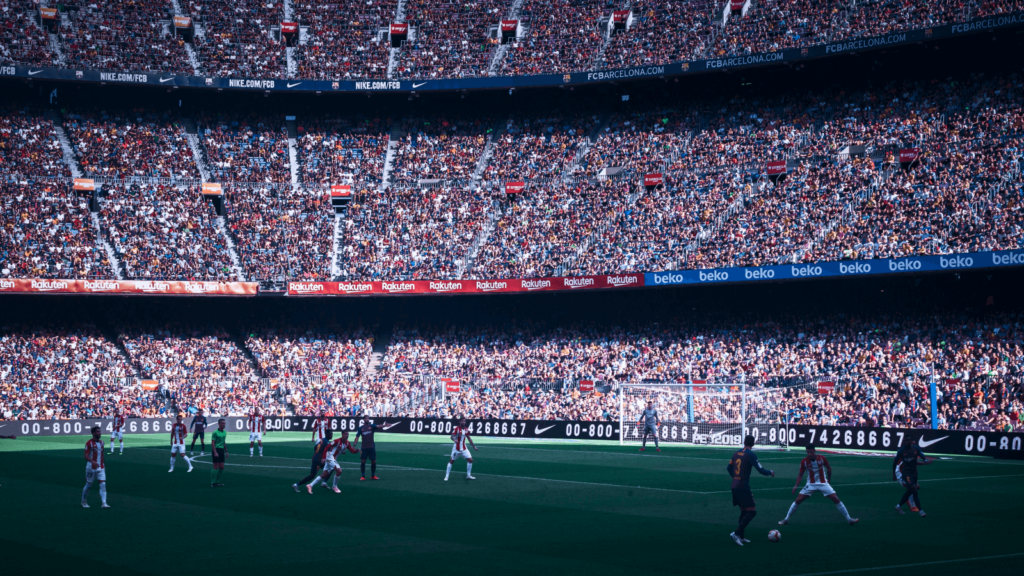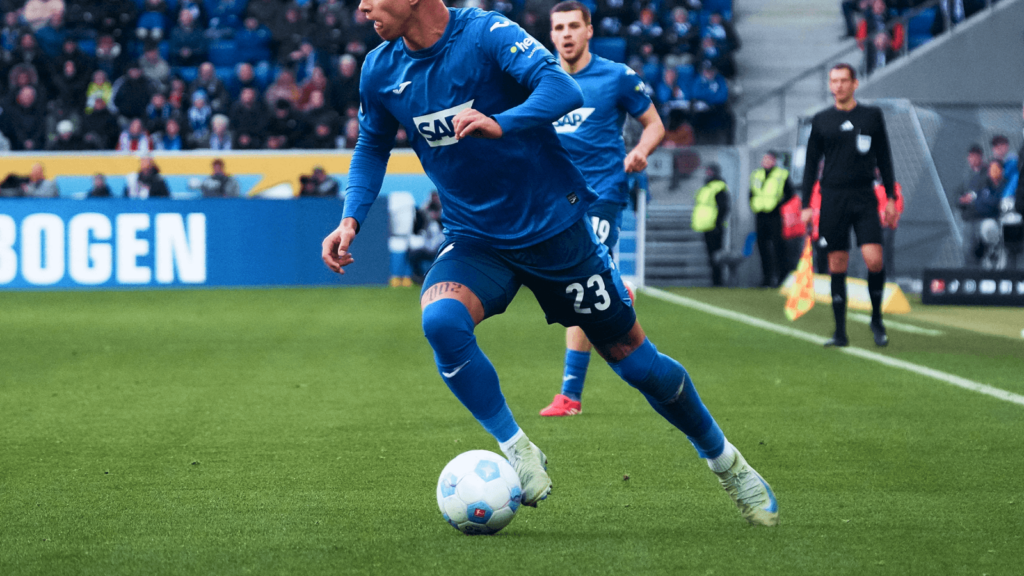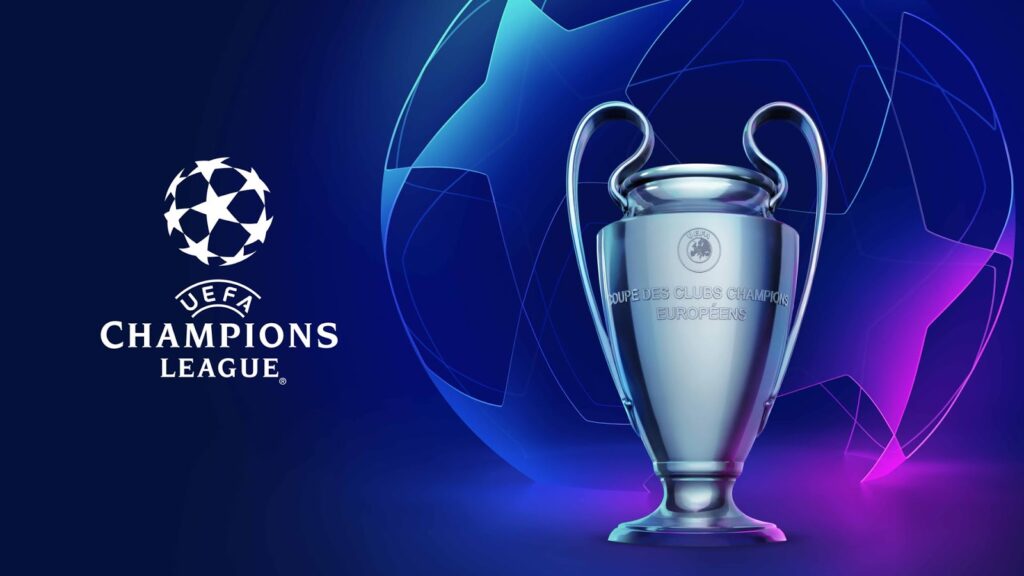The UEFA Champions League (UCL) is the world’s biggest club football tournament, organized by the Union of European Football Associations (UEFA). In this competition, the best European league teams compete to win the most important club football title.
Started as the European Champions Cup or European Cup in 1955, and the name changed to the UEFA Champions League in 1992. Through the years, the competition has grown more intense, including more teams this year. The matches are watched by millions of fans from different countries worldwide.

The top clubs from the English Premier League, La Liga, Bundesliga, Serie A, and Ligue 1 compete every season. The things that make the Champions League famous are its exciting matches, amazing goals, and unforgettable moments.
How the UEFA Champions League Works
The Champions League features a defined set of playing rules.
- Qualifying Rounds – While 29 teams are already qualified for the tournament, five of the seven remaining spots go to winners of a four-round tournament among 43 – 44 national champions, with higher-ranked teams receiving byes. The other two spots go to winners of a three-round tournament involving 10 – 11 clubs from associations ranked 5 – 15, based on league placement. After qualifying rounds, 36 final teams advance to the league phase followed by knockouts, and conclude with the final match.
- League Stage – The new format introduced the league phase, replacing the earlier group stage. Each of the 36 teams faces 8 opponents, in 4 home and 4 away games. Each team plays matches to earn points and qualify for the next round.
- Knockout Stage – The top 8 teams from the league stage move to the Round of 16 directly, with teams ranking in 9th to 24th battling out in a knockout phase for the rest of the 8 places in the round of 16. These final 16 teams face a move to the Quarterfinals.
- Quarter-finals & Semi-finals – These matches also follow a knockout format, with each team battling in two legs (home and away). The last two remaining teams would qualify for the final.
- Final – The two teams play one match to decide the ultimate champion.
The final of the Champions League is one of the most-watched football games in the world. Fans celebrate as their favorite teams and players compete for the trophy.
Fixtures and Match Schedule
The Champions League follows a set schedule every season. The competition usually begins in July with qualifying rounds. It continues until May when the final is played.
- League Stage – Matches take place between September and January.
- Knockout Rounds – February until May.
- Final – The final takes place in May, usually on a neutral venue, decided by UEFA before the season starts.
Football schedules are made available on football websites such as Sofascore for fans to check. Live updates, results, and scores are available on these platforms.

UEFA Champions League Format Change
The playoffs are one of the most enjoyable as well. This year, with the introduction of the league phase, UEFA planned to make the competition even more exciting, with each team playing against 8 teams to the usual 3 teams like until last year. Until last year, the teams were divided into groups and they competed for a place in the knockout rounds.
- The top two teams from each group advance to the Round of 16.
- The third-place team moves to the Europa League.
- European competition for the season is over for the fourth-placed team.
But in the new format, each team plays against 8 teams in the 36-league system. Teams are chosen according to the UEFA coefficient, ensuring that every team gets an equal chance to qualify to the next round.

Already, it has not been easy for big teams like Real Madrid, Bayern Munich and Manchester City. Fans have also been surprised by some of the smaller teams’ strong performances. The standings change after every match, making the tournament exciting until the last group-stage game. Fans can check updated rankings on Sofascore.
Stats from the 2023/24 Season
Some of the best players in the world are competing in the Champions League. Here are the top goal scorers so far:
- Kylian Mbappé (PSG) – 8 goals
- Harry Kane (Bayern Munich) – 8 goals
These two players were also leading the race for the European Golden Boot (award for the top scorer across all competitions of the season) which Harry Kane won with a staggering 36 goals.
Other Key Stats from the 2023/24 Season
- Most goals scored (team): Real Madrid – 18 points (Group Stage)
- Best goal difference: Arsenal (+12)
- Most goals in a single match: Porto 5-3 Shakhtar Donetsk
- Least goals allowed: Real Sociedad – 2 goals (Group Stage)
- Average goals per match: 3.08 (96 matches in group stage)
The tournament was filled with thrilling matches and amazing performances. Real Madrid were crowned Champions of the tournament for a record 15th time, the most by any team in the competition.

Knockout Stage and Road to the Final
After the league stage, the tournament enters the knockout rounds. This is where the best teams compete in tough matches.
Each round includes:
- Round of 16 – Top 8 teams play against the next 8 teams in a two-legged knockout round.
- Quarter-finals – The best 8 teams battle for a place in the semi-finals.
- Semi-finals – The top 4 teams fight for a spot in the final.
- Final – The last 2 teams play a single match to decide the champion.
The Champions League Final does not use the same double-head format used in previous rounds. UEFA picks a stadium away from both teams as their final match venue every season beginning. The Champions League tournament runs successfully because clubs need clear playing dates. Every team needs to decide on their strategies to keep their team up to the mark in different competitions across the calendar year.
- As the competition progresses, teams need to adapt quickly to their opponents, while gauging their prowess in their respective National league.
- Teams sometimes take up to a different formation in the Champions League, unlike the ones they follow in their league, to face unfamiliar opponents.
- When a team has consecutive National league and Champions league matches, coaches generally tend to rest their best stars for a better performance in the Champions league, while giving a chance to youngsters to showcase their talent in the National league.
Football fans eagerly review the tournament schedule to locate major games. Fans eagerly look forward to watching top clubs compete against each other in key matches including Barcelona, Real Madrid, Manchester City, Bayern Munich, Liverpool, PSG and more from different countries. Fans can check match dates, kickoff times, and live scores on Sofascore and UEFA’s official website.
Why Standings Matter in the UEFA Champions League
Standings (rankings) decide which teams qualify for the knockout stage and which teams get eliminated.
Points are awarded as follows:
- Win: 3 points
- Draw: 1 point
- Loss: 0 points
UEFA follows several criteria to choose between teams that end with equal point totals last placed in their group.
- An advantage emerges through the measure of scoring totals against conceded goals.
- Teams receive ranking based on their direct playing results against each other.
- Total goals scored.
- The league leaders acquire lower-ranked opponents for the following round. The system offers them better chances at advancing further in the competition.
Conclusion
The UEFA Champions League represents the biggest club football contest worldwide. The competition brings together elite players on outstanding teams for their most memorable games.
The league stage is over, and the knockout rounds are starting soon. Teams are giving their best to reach the final and win the trophy.
Fans can stay updated with fixtures, standings, and match results by following Sofascore and UEFA’s official updates. No matter which team you support, the Champions League always delivers exciting football action!
